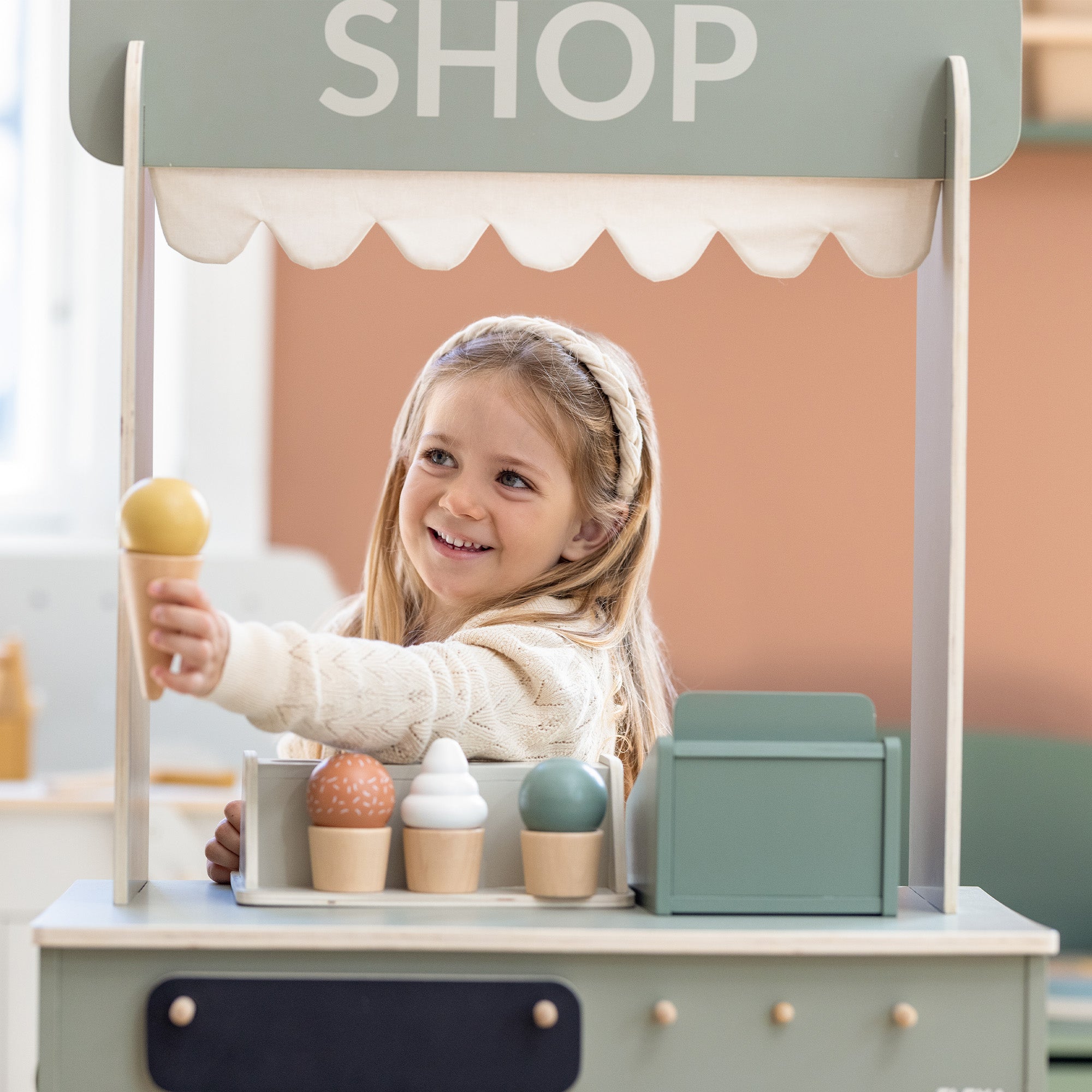“Hey, let’s pretend I’m a princess and you’re the brave prince who comes to my rescue!” From around age 3, children begin to really play with each other. One of their favourite games is pretending to be somebody or something else – a game that we adults should only encourage, as role playing enhances a long list of social and individual skills.
Highlights:
- Make-believe games allow children to make sense of the world around them.
- Role playing teaches children to show empathy and consideration for others.
- Pretending to be somebody else broadens children’s vocabulary and body language.
- From role play, children gain experience with social norms and telling right from wrong.
- You can support your child’s development with toys that kickstart role playing.
Me in This Big World
Make-believe games allow your child to make sense of the world, by acting out scenarios that your little one has experienced in real life. In the pretend universe, your child gets to replay intense feelings, like fear, joy, or jealousy, but from a safe distance.
“The scenes can be something from your child’s everyday life, or from other people’s lives. It can even take place in another era or in a complete fantasy setting. Children of all ages love to role play and they use their imagination to come up with independent thoughts, new ideas and clever ways to solve problems,” says Danish expert in children’s play, Joern Martin Steenhold.
Showing Consideration for Others
With every new role, there’s a set of duties and responsibilities to follow. In the role of chef, for instance, your little one is free to experiment with giving and receiving orders, without it having any real consequences. That way, role play teaches your child to identify with others and to show empathy and consideration for others.
Learning New Words and Gestures
Walking like a true princess, gesturing like a shop owner, or speaking the words of a master chef will expand your child’s communication skills – both in terms of verbal and physical expression. Role play is the perfect opportunity for your little one to try out new words and learn to interpret others in a complex, social setting.
Telling Right from Wrong
Through role play, your child gets a chance to mimic adult behaviours in various social contexts. It’s a way for your little one to test society’s limits and learn the difference between right and wrong, true and false, real and imaginary.
“In a game, you can observe a group of children change the rules up to several times, but this all serves a purpose – the purpose of gaining experience with social norms and learning what’s okay and what’s not okay when you’re around other people,” says Joern Martin Steenhold.
So, go ahead and encourage role playing in your home.

